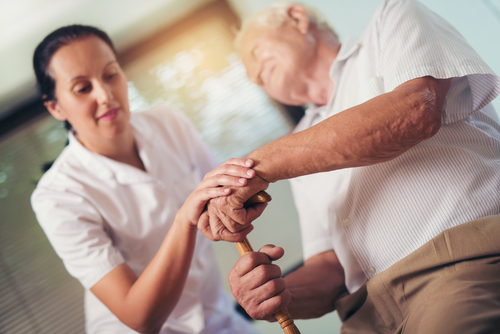Parkinson’s Non-Motor Symptoms More Keenly Felt by Care Partners Than Patients, PMD Alliance Survey Finds
Written by |

An online survey by the nonprofit group PMD Alliance found that care partners are more likely to report Parkinson’s disease-related non-motor symptoms than are patients themselves, and to feel more affected by them.
These responses underscore the need for better recognition and education about Parkinson’s non-motor symptoms, many of which significantly affect quality of life.
A study based on the survey, “Impact of non-motor symptoms in Parkinson’s disease: a PMDAlliance survey,” was published in Neuropsychiatric Disease and Treatment.
Besides its typical motor symptoms, people with Parkinson’s often experience such disease-related issues as cognitive impairment, sleep difficulties, depression, anxiety, and psychosis.
These symptoms affect patients’ quality of life and increase the burden felt by care partners, who play an important role in keeping patients engaged in daily activities.
Care partner, according to the study, refers to a partnership between a care receiver (patient) and giver that’s characterized by mutual cooperation and joint responsibility. It’s distinct from caregiver, which usually implies care provided to people unable to take care for themselves.
The Parkinson’s Disease News Today forums are a place to connect with other patients, share tips and talk about the latest research. Check them out today!
To evaluate and better understand the perceptions, experiences, and educational needs of Parkinson’s patients and their care partners in terms of non-motor symptoms, researchers designed a 17-question, patient-oriented survey. The online questionnaire was sent to all members of the PMD Alliance — also known as the Parkinson & Movement Disorder Alliance — most of whom are patients and their care partners. A majority, about 75%, of members are older than 65.
Investigators registered 700 completed surveys. Of these, 378 (54%) came from care partners and 287 (41%) from Parkinson’s patients; the remaining 5% were from “others,” a term that includes health professionals as well as other family members or friends.
“About 90% of the respondents reported having experience with [non-motor symptoms] in [people with Parkinson’s], including sleep problems (84%), cognitive symptoms (76%), anxiety (65%), depression (56%), hallucinations (40%), and delusions (23%),” the researchers wrote.
Compared to patients, care partners were most likely to report these non-motor manifestations, except for sleep problems or excessive tiredness (84% of care partners and 85% of patients).
Overall, non-motor symptoms were reported by more care partners (97%) than by people with the neurodegenerative disorder (80%). Differences in the reported prevalence between care partners (357 respondents) and patients (216) of these symptoms were statistically significant for cognitive challenges (84% vs. 62%), anxiety (69% vs. 57%), depression (59% vs. 50%), hallucinations (51% vs. 23%), and delusions (32% vs. 8%), the researchers state.
Among the 579 respondents with non-motor symptom experience, symptom onset was evident within three years of diagnosis for more than half (53%), and within five years after diagnosis for 72%.
Almost half of all respondents — more care partners than patients — said non-motor manifestations were harder to deal with than motor symptoms.
More care partners than patients also “indicated that [non-motor symptoms] had either ‘very much’ of an impact (28% vs. 7%) or ‘quite a bit’ of an impact (38% vs. 26%) on quality of life,” while patients were more likely (42% vs. 24%) to define these symptoms as having only “‘some’ impact on quality of life,” the researchers wrote.
Daily activities most affected ranged from completing self-care (72%) and making plans or socializing with family and friends (57% and 58%, respectively), to running errands and finishing household chores (both 53%).
Most respondents, especially care partners with or without non-motor symptom experience, expressed an interest in more information and better education regarding cognitive symptoms, sleep problems, anxiety, depression, hallucinations or delusions.
“This survey underscores the significant impact of [non-motor symptoms] on the quality of life of [people with Parkinson’s] and highlights the need for improved recognition and education about its effects,” the researchers concluded.


